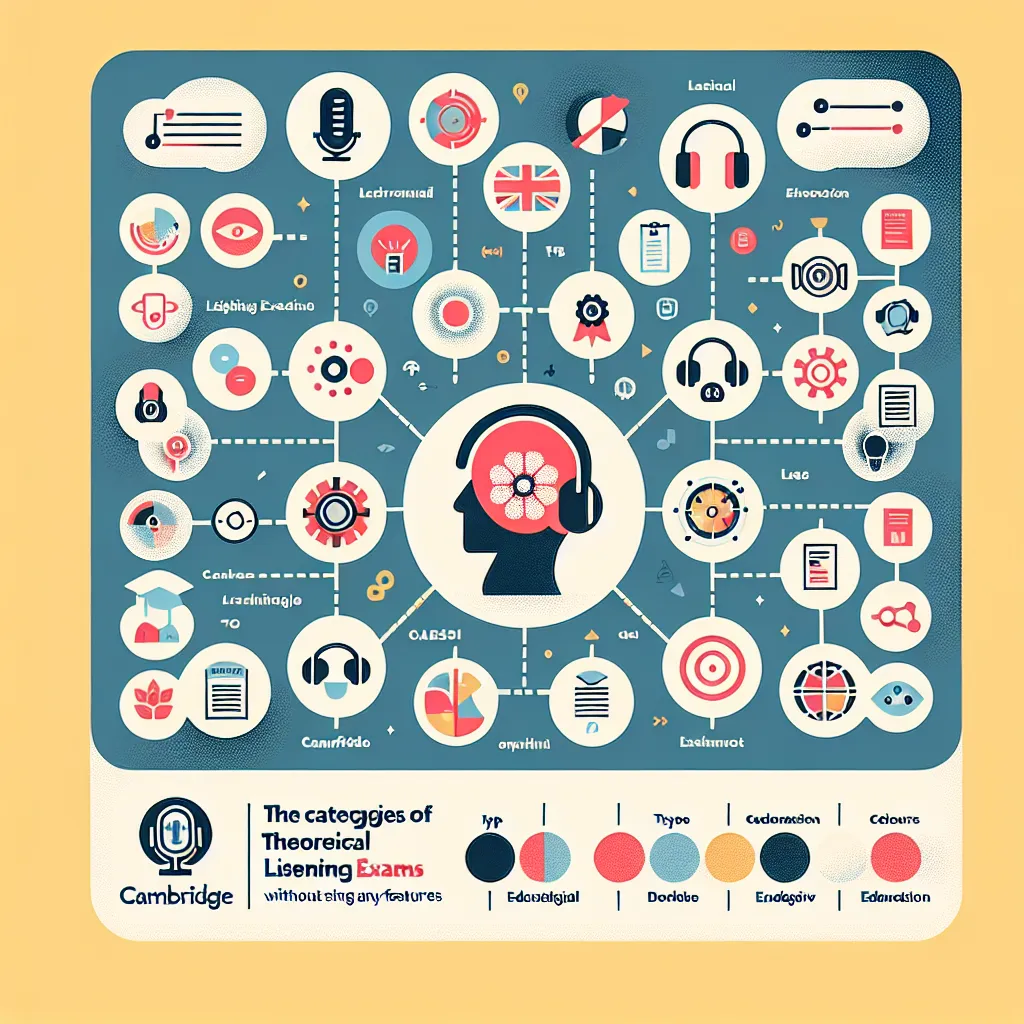Are you preparing for the Cambridge English exams and aiming to excel in the listening section? You’re in the right place! As an experienced Cambridge exam instructor and content creator at LearnEnglish.NET, I’m here to share valuable insights and strategies to help you achieve a high score in Cambridge Listening. Let’s dive into the essential techniques and tips that will boost your performance and confidence.
Understanding the Cambridge Listening Test
Before we delve into strategies, it’s crucial to understand the structure and format of the Cambridge Listening test. This knowledge forms the foundation for effective preparation and helps you tackle the exam with confidence.
Test Format and Structure
The Cambridge Listening test typically consists of four parts, each focusing on different aspects of listening comprehension. You’ll encounter a variety of audio materials, including conversations, monologues, and recordings in both formal and informal contexts. The test assesses your ability to understand main ideas, specific details, opinions, and implied meanings.
 Cambridge Listening Test Structure
Cambridge Listening Test Structure
Scoring System
Understanding how the test is scored is essential for maximizing your performance. Each correct answer contributes to your overall score, which is then converted to the Cambridge English Scale. Familiarizing yourself with this scoring system helps you set realistic goals and focus your efforts effectively.
Strategies for Success in Cambridge Listening
Now that we’ve covered the basics, let’s explore proven strategies to help you excel in the Cambridge Listening test.
1. Develop Active Listening Skills
Active listening is a crucial skill for success in the Cambridge Listening test. Here’s how to improve:
- Practice focused attention: Train yourself to concentrate fully on the audio without distractions.
- Anticipate information: Based on the questions, try to predict what information you might hear.
- Take mental notes: Organize the information you hear in your mind as you listen.
2. Improve Your Vocabulary
A strong vocabulary is essential for understanding a wide range of topics in the listening test. To enhance your vocabulary:
- Read extensively: Expose yourself to various English texts to encounter new words in context.
- Use vocabulary apps: Incorporate apps like Quizlet or Anki for daily vocabulary practice.
- Learn word families: Understanding root words, prefixes, and suffixes can help you decipher unfamiliar words.
3. Familiarize Yourself with Different Accents
Cambridge Listening tests feature speakers with various English accents. To prepare:
- Listen to podcasts, news broadcasts, and interviews from different English-speaking countries.
- Watch TV shows and movies with diverse casts to expose yourself to various accents.
- Practice with Cambridge exam-specific materials that include a range of accents.
4. Master Time Management
Effective time management is crucial during the listening test. Here are some tips:
- Read questions in advance: Use the time given before each section to familiarize yourself with the questions.
- Keep pace with the recording: Don’t spend too much time on any single question.
- Use shorthand: Develop a quick note-taking system to jot down key information efficiently.
5. Practice with Past Papers and Mock Tests
Regular practice with authentic exam materials is one of the most effective ways to prepare. Here’s how to make the most of it:
- Simulate exam conditions: Time yourself and complete full practice tests without interruptions.
- Analyze your mistakes: Review incorrect answers to understand your weak areas and focus on improving them.
- Gradually increase difficulty: Start with easier practice tests and progress to more challenging ones as you improve.
 Cambridge Listening Practice Session
Cambridge Listening Practice Session
Common Pitfalls to Avoid
Being aware of common mistakes can help you avoid them during the actual test. Here are some pitfalls to watch out for:
- Overthinking: Don’t second-guess yourself too much. Trust your initial understanding unless you’re certain it’s incorrect.
- Losing focus: Stay concentrated throughout the test, even if you miss an answer. Each question is an opportunity to score points.
- Panicking over unfamiliar words: If you encounter unknown vocabulary, use context clues to deduce meaning rather than fixating on the unfamiliar term.
Advanced Techniques for High Scorers
If you’re aiming for top scores, consider these advanced strategies:
1. Develop Inference Skills
Practice reading between the lines and understanding implied meanings. This skill is often tested in higher-level Cambridge exams.
2. Enhance Note-Taking Techniques
Develop a personal shorthand system that allows you to quickly jot down key information without missing the next part of the recording.
3. Build Stamina
The listening test requires sustained concentration. Build your listening stamina by gradually increasing the duration of your practice sessions.
Next Steps: Putting It All Together
Now that you’re equipped with these strategies, it’s time to put them into practice. Here’s a suggested action plan:
- Assess your current level with a diagnostic test.
- Create a study schedule incorporating regular listening practice.
- Focus on your weak areas while maintaining your strengths.
- Take full-length practice tests under timed conditions at least once a week.
- Review and reflect on your progress, adjusting your strategy as needed.
Remember, consistency is key. Regular practice and application of these techniques will significantly improve your performance in the Cambridge Listening test.
Conclusion
Scoring high in Cambridge Listening is achievable with the right approach and dedicated practice. By understanding the test format, developing active listening skills, expanding your vocabulary, managing time effectively, and practicing regularly, you’ll be well on your way to success. Remember to stay calm and confident during the test – your preparation will pay off!
Do you have any specific questions about preparing for the Cambridge Listening test? Share your thoughts in the comments below, and don’t forget to check out our other articles on Cambridge exam preparation for comprehensive guidance on all test sections.
[internal_links]




